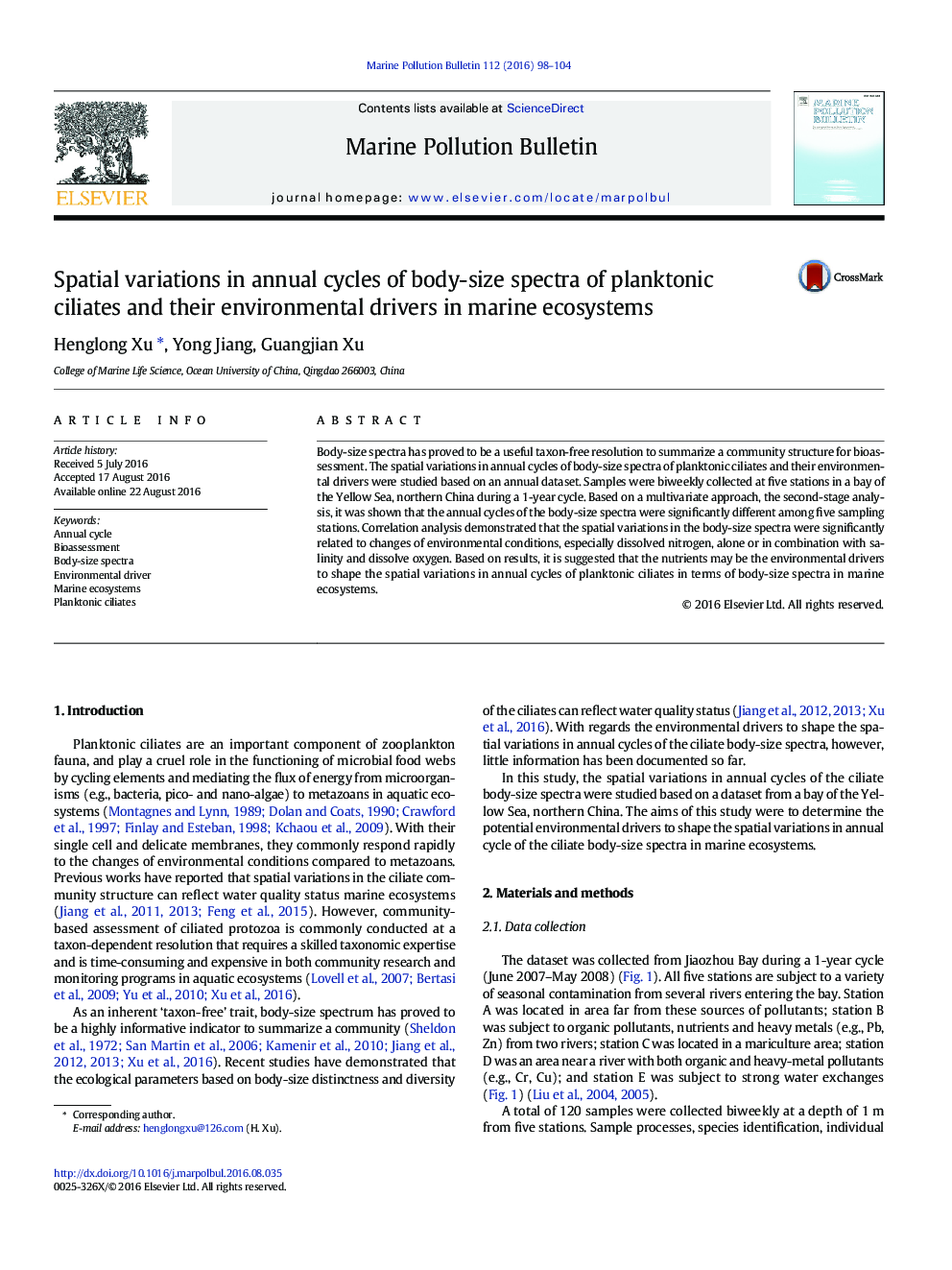| Article ID | Journal | Published Year | Pages | File Type |
|---|---|---|---|---|
| 5757993 | Marine Pollution Bulletin | 2016 | 7 Pages |
Abstract
Body-size spectra has proved to be a useful taxon-free resolution to summarize a community structure for bioassessment. The spatial variations in annual cycles of body-size spectra of planktonic ciliates and their environmental drivers were studied based on an annual dataset. Samples were biweekly collected at five stations in a bay of the Yellow Sea, northern China during a 1-year cycle. Based on a multivariate approach, the second-stage analysis, it was shown that the annual cycles of the body-size spectra were significantly different among five sampling stations. Correlation analysis demonstrated that the spatial variations in the body-size spectra were significantly related to changes of environmental conditions, especially dissolved nitrogen, alone or in combination with salinity and dissolve oxygen. Based on results, it is suggested that the nutrients may be the environmental drivers to shape the spatial variations in annual cycles of planktonic ciliates in terms of body-size spectra in marine ecosystems.
Related Topics
Physical Sciences and Engineering
Earth and Planetary Sciences
Oceanography
Authors
Henglong Xu, Yong Jiang, Guangjian Xu,
